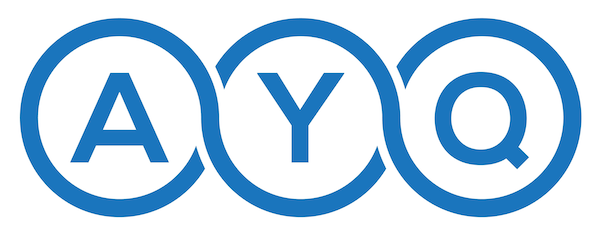Freelancing and full-time employment are two distinct career paths that offer unique benefits and considerations. If you’re weighing the decision between freelancing and full-time work, it’s essential to understand the pros and cons of each option.
Freelancing has gained popularity in recent years due to the flexibility it offers, allowing individuals to work on their own terms and choose their projects. With freelancing, you have the freedom to set your own schedule and work from anywhere in the world. It can be an attractive option for those seeking a more autonomous work environment.
On the other hand, full-time employment provides stability, security, and a structured office environment. You’ll have the peace of mind that comes with a consistent paycheck, employer-provided benefits such as health insurance and retirement plans, and clear career advancement opportunities.
Each path has its advantages and drawbacks. As an informed decision-maker, it’s important to consider your personal preferences, financial goals, work-life balance, and long-term career objectives. In this article, we’ll explore the benefits and challenges of freelancing versus full-time employment, enabling you to make a well-informed choice that aligns with your unique circumstances.
The Benefits of Full-Time Employment
Full-time employment offers several advantages that can enhance your professional and personal life. Let’s explore the key benefits of being a full-time employee:
1. Security and Stability
Unlike freelancers who typically experience irregular income, full-time employees enjoy the stability of a steady paycheck. This financial security allows you to better plan for your future, pay bills, and meet your financial responsibilities without the stress of fluctuating income.
2. Employer-Provided Benefits
Full-time employment often comes with a comprehensive package of benefits offered by employers. These benefits can include health insurance, retirement plans, paid time off, and other perks. Access to employer-provided benefits allows you to take care of your physical and financial well-being.
3. Professional Growth Opportunities
Working full-time in an organization provides you with numerous opportunities for career growth and development. You can collaborate with experienced colleagues, learn from mentors, attend training programs, and potentially take on higher-level roles within the company. This structured environment fosters professional growth and helps you advance your career.
4. Work-Life Balance
Although freelancing offers flexibility, full-time employment also allows for a healthy work-life balance. By having set working hours and the ability to disconnect from work after office hours, you can fully enjoy your personal life and spend quality time with loved ones without the constant pressure of finding new clients or managing projects on your own.
5. Social Interaction and Networking
Being a full-time employee means working alongside colleagues on a daily basis, which fosters social interaction and opportunities for networking. Building relationships with coworkers can lead to valuable connections, mentorship, and future career prospects.
Overall, full-time employment provides a range of benefits that contribute to your financial security, professional growth, and work-life balance. These advantages make it an attractive option for individuals seeking stability and continued development in their careers.
| Benefits | Description |
|---|---|
| Security and Stability | Enjoy a reliable income and financial stability with a steady paycheck. |
| Employer-Provided Benefits | Access to comprehensive benefits such as health insurance, retirement plans, and paid time off. |
| Professional Growth Opportunities | Opportunities for career advancement, mentorship, and skill development within a structured office environment. |
| Work-Life Balance | Ability to prioritize personal life and have designated time off work to rejuvenate and recharge. |
| Social Interaction and Networking | Opportunities to build relationships, expand professional networks, and collaborate with colleagues. |
Investing your skills and time in full-time employment can provide a stable foundation for your career growth while offering valuable benefits and opportunities for personal development.
The Drawbacks of Freelancing
While freelancing offers flexibility and the ability to be your own boss, there are several drawbacks to consider. Freelancers must handle their own taxes and financial planning, as well as finding and securing their own clients. Additionally, the income of freelancers can be unpredictable, making it necessary to constantly search for new projects to maintain a stable cash flow.
Financial Responsibility
One of the main challenges of freelancing is the financial responsibility that comes with it. As a freelancer, you are responsible for managing your own taxes, which can be complex and time-consuming. Unlike full-time employees who have their taxes deducted from their paycheck, freelancers need to set aside a portion of their income for tax payments and ensure they comply with all relevant regulations.
Client Acquisition and Uncertainty
Another drawback of freelancing is the ongoing need to find and secure clients. Unlike full-time employees who have a steady stream of work from their employer, freelancers must constantly market themselves and pitch their services to potential clients. This can be time-consuming and requires good networking skills and a strong portfolio to stand out from the competition. Additionally, the income of freelancers can vary greatly from month to month, leading to financial uncertainty and the need to constantly search for new projects to maintain a stable cash flow.
| Drawbacks of Freelancing | Challenges |
|---|---|
| Financial responsibility | Managing own taxes |
| Client acquisition | Constant marketing and pitching |
| Income uncertainty | Varies month to month |
Flexibility vs. Security
When it comes to choosing between freelancing and full-time employment, one of the main considerations is the trade-off between flexibility and security. Freelancing offers a lifestyle characterized by flexibility, where you have control over your work schedule and location. You have the freedom to choose the projects you work on and the clients you collaborate with. This flexibility allows you to create a work-life balance tailored to your needs and preferences.
On the other hand, full-time employment provides financial security and stability. As a full-time employee, you can rely on a steady paycheck, benefits such as health insurance and retirement plans, and the assurance of a structured work environment. This financial security can provide peace of mind and a sense of stability in your professional life.
Both freelancing and full-time employment offer their unique advantages and challenges. To help you make an informed decision, here is a comparison of the key aspects:
| Aspects | Freelancing | Full-time Employment |
|---|---|---|
| Work Schedule | You have control over your work schedule, allowing for flexibility and the ability to work when it suits you best. | You typically have set working hours, which may offer less flexibility but provide a structured routine. |
| Location | You can work from anywhere, whether it’s from the comfort of your home or while traveling the world. | You work from a designated office or workplace, providing a sense of stability and consistency. |
| Financial Security | Your income may be more variable, requiring careful financial planning and management. | You can rely on a steady paycheck and employer-provided benefits for financial stability. |
| Client Acquisition | You are responsible for finding and securing your own clients, which requires ongoing networking and marketing efforts. | Clients are typically assigned to you by your employer, freeing you from the burden of client acquisition. |
By assessing these factors, you can determine which option aligns better with your lifestyle, financial goals, and personal preferences. Remember, there is no one-size-fits-all answer, and what works for someone else may not work for you.
Ultimately, the decision between freelancing and full-time employment is a personal one. Some individuals thrive in the freelancing lifestyle, relishing in the flexibility and autonomy it offers. Others prefer the stability and security of a full-time job. It’s important to weigh the pros and cons, consider your financial security, and assess your priorities to make the choice that best suits your individual circumstances and aspirations.

References:
- Smith, J. (2021). The Pros and Cons of Freelancing Versus Full-Time Employment. Business Today.
- Johnson, S. (2020). Choosing Between Freelancing and Full-Time Employment. Career Insights.
Expertise and Networking Opportunities
As a freelancer, you have the unique opportunity to work with diverse clients and hone your expertise in a specific field. The freelance lifestyle often demands a high level of skill and specialization, allowing you to showcase your expertise and be recognized as an expert in your industry.
By working on different projects with various clients, you can expand your knowledge and gain hands-on experience that can further enhance your expertise. This experience can be invaluable in building your reputation and attracting more clients who are looking for professionals with your level of skills and knowledge.
In addition to expertise, freelancing also offers excellent networking opportunities. Through your work with different clients, you can build a strong network of professional contacts who can provide referrals, testimonials, and future work opportunities. Networking is essential in the freelancing world, as it can open doors to new projects, collaborations, and potential long-term clients.
Take advantage of industry events, conferences, and online communities to connect with other freelancers and professionals in your field. Engage in conversations, share your experiences, and offer insights to establish yourself as a trusted expert. Building a network of like-minded professionals can not only expand your business opportunities but also provide support, guidance, and valuable connections.
Networking Tips for Freelancers
| Tip | Description |
|---|---|
| Attend industry events | Participate in conferences, workshops, and seminars to meet potential clients and network with other professionals in your field. |
| Join online communities | Engage in relevant online forums, social media groups, and professional networks to connect with others and build your online presence. |
| Offer value | Share your knowledge and insights through blog posts, articles, or speaking engagements to establish yourself as an expert in your niche. |
| Collaborate with others | Seek opportunities for collaboration with fellow freelancers or professionals to expand your network and reach a wider audience. |
| Maintain relationships | Stay in touch with your professional contacts by sending occasional updates, greetings, or even meeting up for coffee or lunch. |
Networking opportunities in freelancing are not only beneficial for gaining more clients but also for personal and professional growth. By establishing a strong network of industry professionals who share your passion and interests, you can stay up to date with the latest trends, learn from others’ experiences, and find a sense of community in a field that can sometimes feel isolating.
Remember, building expertise and networking opportunities go hand in hand in freelancing. Embrace every chance to showcase your skills, connect with others, and contribute to your industry, as these efforts can lead to fulfilling and successful freelancing endeavors.
Work-Life Balance and Loneliness Factors
One of the key advantages of freelancing is the potential for achieving a better work-life balance. Unlike traditional full-time employment, freelancers have the flexibility to prioritize their personal lives and create their own schedules. This allows individuals to accommodate their work around their own needs and commitments, whether it’s spending quality time with family, pursuing hobbies, or taking care of personal responsibilities. Freelancing empowers you to have greater control over your time and strike a harmonious balance between work and life.
However, it’s important to acknowledge that freelancing can also come with its own set of challenges. One of the most significant drawbacks is the sense of loneliness that can creep in when working independently. Unlike office environments where colleagues are readily available for support and collaboration, freelancers often work in isolation. This lack of daily interaction and the absence of a built-in support system can lead to feelings of loneliness and isolation.
While working from the comfort of your own space has its benefits, combating loneliness requires proactive measures. Consider joining professional organizations or attending networking events within your industry to foster connections with like-minded individuals. Additionally, co-working spaces provide opportunities to work alongside other freelancers and entrepreneurs, creating a sense of community. It’s crucial to find ways to stay connected and engage in social interactions to combat the potential loneliness that can arise in freelancing.
Creating a Work-Life Balance:
When freelancing, it’s essential to establish boundaries and set clear work hours to maintain a healthy work-life balance. This ensures that you have dedicated time for work and personal activities. Avoid the common pitfall of overworking and burning out by defining specific start and end times for your workday. Make sure to schedule regular breaks and allocate time for self-care activities to recharge and avoid stress and exhaustion.
Moreover, freelancing allows you to take advantage of the flexibility it offers by prioritizing self-care. Incorporate activities such as exercise, meditation, or spending time outdoors into your daily routine to maintain your physical and mental well-being. Remember, a well-rested and rejuvenated mind will lead to increased productivity and overall satisfaction in your work.
In conclusion, freelancing provides the opportunity to achieve a better work-life balance, giving you the freedom to tailor your schedule according to your needs. However, it’s crucial to be mindful of the potential loneliness that can accompany this profession and take proactive steps to combat it. By cultivating connections, engaging in social activities, and prioritizing self-care, you can enjoy the benefits of freelancing while ensuring a fulfilling and balanced work-life experience.
Making the Decision
When it comes to deciding between freelancing and full-time employment, it’s important to consider your individual preferences and circumstances. There are several key factors that should be taken into account to make an informed choice.
First and foremost, consider your financial stability. Freelancing can provide the opportunity for higher earnings, but it can also come with income uncertainty. Evaluate your financial situation and determine if you have the necessary financial cushion to handle potential fluctuations in income.
Next, think about the level of flexibility you desire in your work. Freelancing offers the freedom to set your own schedule and work from anywhere, while full-time employment typically comes with a structured work environment. Consider what kind of work-life balance you want to achieve and if you have the discipline and self-motivation to thrive in a freelance setting.
Additionally, reflect on your career goals and personal values. Freelancing can allow you to pursue your passion projects and work on a variety of projects, but full-time employment may offer greater opportunities for career growth and development. Consider what aligns with your long-term goals and values.

